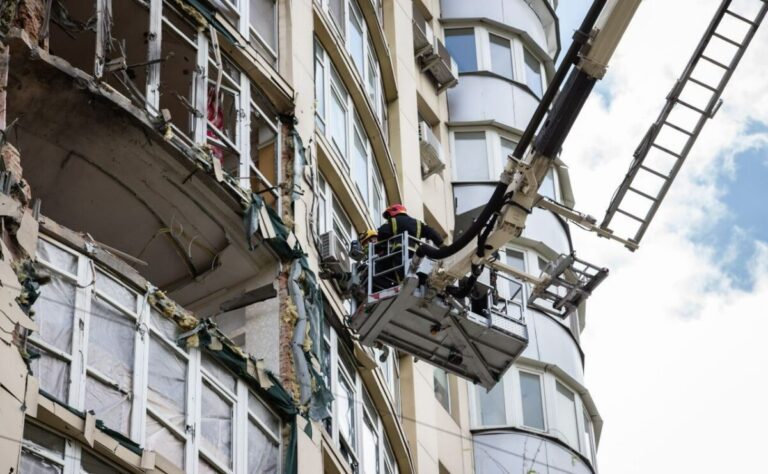
Criminal liability for mobilization abuse: what draft law №13365 means for Ukraine’s TRCs
In June 2025, a significant legislative initiative appeared in Ukraine’s parliament — draft law №13365. Its core idea is to introduce criminal liability for the abuse of power by employees of Territorial Recruitment Centers (TRCs) during mobilization. The law specifically targets cases of physical force, intimidation, or failure to provide timely medical assistance — situations widely referred to as “busification” on social media.
This article breaks down:
• Why the draft was proposed
• What it actually contains
• How it aligns with current law
• What consequences it may bring
Context: Why was this law introduced?
Mobilization is a necessary function in wartime Ukraine. But in practice, it has sometimes involved intimidation, coercion, verbal aggression, and even beatings by TRC personnel or affiliated military units. Dozens of such incidents have been documented by journalists and civil rights organizations.
Against this backdrop, MP Oleksii Honcharenko submitted draft law №13365 on June 11, 2025, proposing a specific article in the Criminal Code to clearly define and punish such abuses in the context of conscription.
What does draft law №13365 propose?
The draft adds a new criminal offense tentatively titled “Excess of authority during mobilization measures” to the Criminal Code.
It includes three main categories of violations:
1. Failure to call for emergency medical assistance
If a person experiences a health emergency on TRC premises and personnel fail or delay to call an ambulance, the following penalties apply:
- Fine: up to 100,000 subsistence minimums;
- Corrective labor: up to 2 years;
- Restriction of liberty: 2 to 4 years — if it results in loss of work capacity over 25%;
- Imprisonment: up to 3 years — if the person dies due to inaction.
Legal basis: failure to act while holding responsibility for a person in controlled custody, with severe consequences.
2. Use of physical force or property damage
If a TRC official or military staff member:
- uses physical force against a civilian,
- damages or destroys personal property during mobilization—
the following applies:
- Fine: 100,000 to 250,000 subsistence minimums;
- Corrective labor: up to 2 years, or restriction of liberty;
- Mandatory compensation for destroyed property;
- Demotion in military rank by one grade;
- Ban on holding certain positions for 1 to 3 years.
Legal basis: abuse of authority with use of violence and material damage.
3. Threats, beatings, or bodily harm
If TRC personnel:
- threaten with violence or inflict bodily harm,
- especially resulting in permanent injury or disability —
then, depending on severity:
- Restriction of liberty: 1 to 3 years;
- Disciplinary battalion confinement: up to 2 years;
- Imprisonment: 3 to 7 years — if permanent disability occurs;
- Mandatory compensation for treatment;
- Demotion in rank (1–3 grades);
- Ban on holding positions: up to 5 years.
Legal basis: official misconduct with violent consequences, affecting health or dignity.
Why is this law necessary?
- Mobilization is not above the law. It’s a state duty — but human rights remain intact even during wartime.
- Power can be abused. Violence without legal justification is a crime, regardless of rank or context.
- A humane system is more effective. The state has the right to conscript — but also the obligation to protect and respect.
Relevant
How does this relate to current law?
At present, similar offenses may fall under Article 365 of Ukraine’s Criminal Code (“Excess of authority”). However:
- it does not account for the specifics of mobilization;
- no explicit protection exists for individuals on TRC premises;
- there’s no defined liability for medical negligence in this context.
Draft law №13365 addresses this gap by focusing on actions within conscription procedures, making it easier to prosecute and prevent abuse.
What might happen next?
Potential benefits:
- Citizens gain legal safeguards in military-related procedures.
- Abuse deterrence increases due to clear penalties.
- Public trust in institutions may improve — if the law is enforced.
Risks and challenges:
- If not implemented properly, the law may become symbolic only.
- Risk of inconsistent application or failure to investigate violations.
- The line between enforcement and coercion must remain clearly defined.
This draft is not about weakening mobilization. It is about ensuring boundaries between legal duty and illegal conduct — even in wartime.
It reflects an important principle: human dignity and physical safety do not become optional during military service.
Laws like this do not undermine defense — they strengthen it by preserving justice and accountability. If Ukraine is to remain a state governed by law, even during its hardest trials, then such protections must not be symbolic — they must work in practice.















